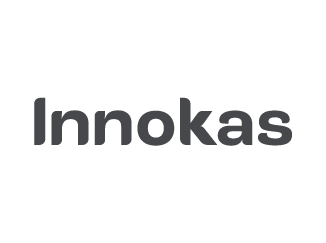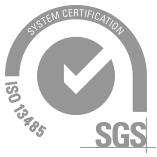When your project needs medical software proficiency, the first step is assessing needed technical and regulatory expertise. Anyone can access the list of regulations, but their practical application to accomplish a project in a successful and timely manner requires a separate set of skills. Simply relying on software consultants may not suffice, as even the most skilled experts need practical experience in developing compliant software before being able to do it reliably. There are approaches that have the potential to save you time, resources and streamline your regulated software project execution.
1. Experience is the key in navigating regulations in software development
If you are moving on to developing medical software for the first time, it’s advisable to reach out to an experienced partner for guidance and consultation on regulations, risk assessment, lifecycle management and quality management systems (QMS). If you are already experienced in regulated software development yourself but you require additional resources on your project, entrusting likewise experienced partner means you don’t need to allocate time to train or guide the additional team members to work with regulations in mind.
As an example, Innokas upkeeps experts’ skills by regularly training them in these areas. Our customers don’t need to use resources to support us in navigating the regulations, resulting swift development and documentation. All software developers also receive collegial support from Innokas regulatory team. Additional support is provided with cybersecurity, healthcare data privacy, risk management, and technical expertise.
2. Integrating regulatory requirements into the development process minimizes costs
Incorporating regulatory requirements into the development process saves time and effort by eliminating the need for extra investigation. This prevents misunderstandings of regulatory demands, steering clear of unnecessary work. Experienced developers recognize the exact amount of necessary documentation and prevent excessively extensive and costly evaluations.
3. Familiarizing with specific regulatory challenges and how to overcome them
To develop compliant software, you need to understand both needs and regulatory requirements for medical software. This involves categorizing software safety classes and designing an architecture that enables the project team to reduce the volume of documentation or the scope of the regulated software product.
A practice that has been a challenge for many of Innokas customers is managing off-the-shelf or open-source components (SOUP) along with their related security requirements. While software risk assessment, change control, and maintaining traceability might become more straightforward once the appropriate practices and tools are implemented, development teams benefit from experienced hands-on support in the beginning. When new development teams in the medical field fail to create easily testable requirements or keep track of test results, it often leads to unexpected surprises and delays towards the project's completion.
Cybersecurity is one of the key requirements which have been raised lately with FDA and MDR and need to be worked from the beginning of the product definition and risk management and continue until maintenance process. Tools that automatically collect evidence and processes reduce the workload with all these requirements.
4. Maximizing development efficiency with specialized contractors
Partnering with specialized contractors reduces risks as you can give them substantial responsibility over the development process. With expertise in medical software solutions, specialized contractors such as Innokas offer access to a diverse talent pool with varied skills and capabilities, including various quality management systems, templates, ALM, tracking, and documentation systems, interoperability standards, relevant technologies, formats, and risk assessments.
Additionally, we offer practical experience in applying regulatory guidelines, leading to swift audits and approval from regulatory bodies, thus reducing time to market and eliminating customer’s concerns about failing to meet every requirement. Our experts offer your experts guidance on development of regulated software to the point that your team gains the skills to handle and maintain projects themselves.
Tailored solutions for every project
Innokas provides services tailored to the unique requirements of each project, whether it's turnkey solutions or leveraging our ISO 13485 approved quality management system for our customer. With experience from a multitude of projects under ISO 13485, Innokas experts are adaptable to a wide range of project needs. You can expect deep industry knowledge, proven best practices, faster time-to-market, risk mitigation, and scalability. If this aligns with your project requirements, we invite you to reach out through the link below.
Editor

Antti Kaltiainen
CTO, Innokas











